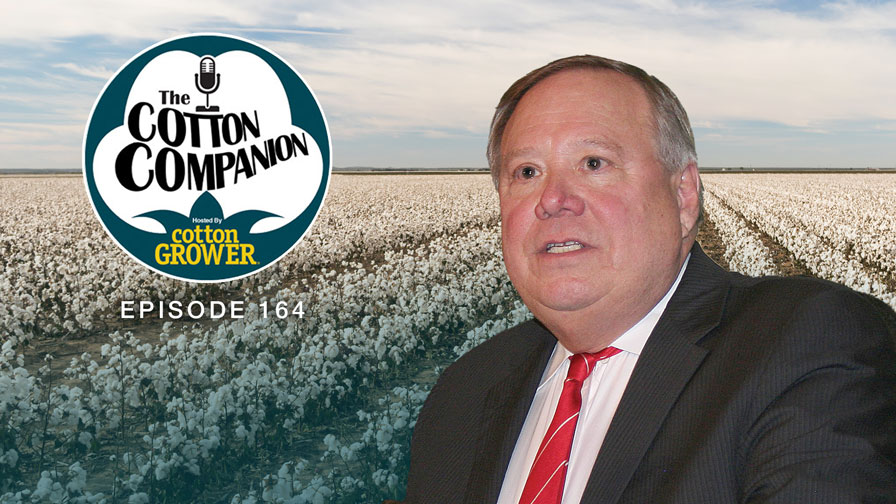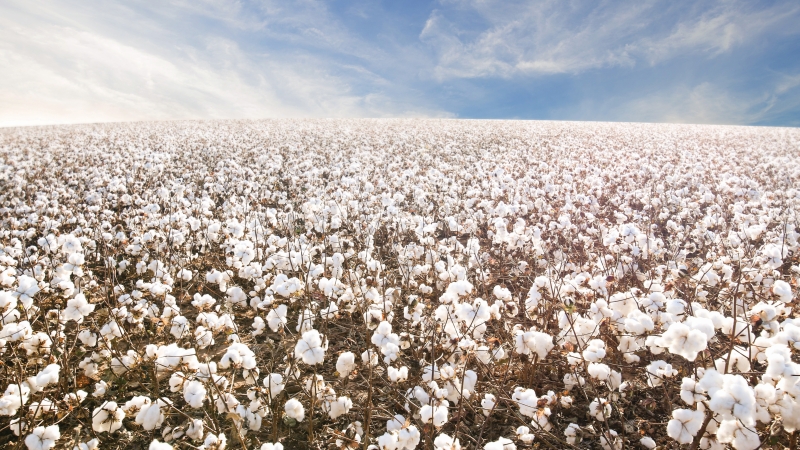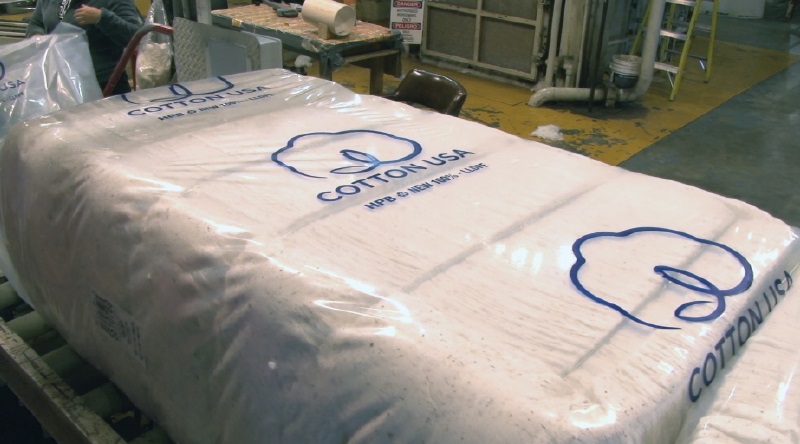‘Can’t’ is Not A Word
If you want to throw down the gauntlet and challenge Dan Taylor, tell him he can’t do something.
“The word ‘can’t’ was never in my vocabulary,” he says. “The story was that you couldn’t start farming on your own. You just couldn’t do it.”
But before he could prove to everyone that he could start farming on his own, he had to prove to himself that he even wanted to.
Taylor was raised on a cattle, sheep, grain and cotton farm near Blum, TX — 45 miles south of Fort Worth.
“I graduated from high school in 1960 and people would ask me what I was planning to do,” he says. “I would tell them that I don’t know what I’m planning to do, but I know what I’m not going to do and I was not going to have anything to do with cotton.”
Taylor spent his freshman year at North Texas State in Denton, TX, which does not offer degrees in agriculture. “I didn’t like it,” he says. “But I matured and came to my senses and knew what my calling was, so I transferred to Texas Tech.”
It was at Texas Tech in Lubbock that his interest in agriculture blossomed and he earned a degree in agriculture education in 1964. He also met his wife Linda there.
Linda graduated from Tech in 1965. “I promised her parents that I’d let her finish, but that we might move back to central Texas after she did,” Taylor says. “By then, I was teaching agriculture at Lubbock Cooper — a rural school. I loved it, she loved it, and we had a house furnished not 50 feet from the agriculture building. We didn’t want to move so we set up a farm at the school and rented a 10-acre farm. The way I talked about that 10 acres, you’d have thought it was 1,000.”
In 1970, he rented 40 more acres near Lubbock to farm on his own, and as the cliché goes, the rest is history.
Farming and Ginning
In 1975, Taylor was hired by Buster McNabb to run Buster’s Gin near Ropesville with the condition that he could continue to farm on the side. Founded in 1947, Buster’s Gin is still very much a going and growing operation, ginning over 115,000 bales in 2007.
Linda joined Buster’s Gin in 1976 as office manager.
“I had a big grower put me in my place one time,” says Taylor. “I had my chest stuck out pretty good over the things we’d accomplished. He had been ginning at 8 or 10 places, but he finally started ginning it all with me. He told me, ‘Young man, I’m not here because of you. I’m here because of your wife.’”
It was also in 1976 that Taylor bought a 25% share of Buster’s Gin on a handshake and with no money down. “Buster offered me a contract, but I told him we didn’t need one,” he says. “If he didn’t like me, or I didn’t like him, we didn’t need a contract tying us together. He told me I could pay for it out of earnings.”
In 1979, Taylor bought another 24%, then bought the remaining 51% in ’86.
McNabb passed away in 1991.
Land and Family
Over the years, Taylor began adding land to his farming operation. “It’s a process,” he says. “I’ve been blessed. When neighbors retired, a lot of them have come to me with offers to rent. It wasn’t like I solicited, but they noticed how we did things. Like I told my children and my students, ‘Be honest and do your best. Then people will pay attention.’”
The Taylor’s have three children — DeLinda, Darrell and Davon.
DeLinda married Thomas Hicklen, who also attended Texas Tech. He joined Taylor in the farming operation and also farms on his own. They have a son, Taylor (18), and a daughter, Shelby (15).
Darrell is a food science graduate of Texas Tech with a Master’s Degree from North Carolina State and works for H-E-B in Dallas.
Davon Cook works part time at Buster’s Gin and is also a consultant for a company in Kansas City.
Taylor sold Buster’s Gin in April to Jim Bradford of Dimmitt, TX, and is putting that money back into land. Linda and DeLinda have a crop insurance business and have used funds from that to buy land.
“Now we rent out about as much as we farm, but I’ve always told Thomas that if we need to, that’s land we can farm,” Taylor says. “I’ve always thought land was a good investment.”
They own land in Lubbock, Hockley, Lynn and Terry Counties.
Taylor has cut back his active farming operation to 640 acres of cotton, while Hicklen has expanded to 3,750.
Equipment continues to be shared.
Efficiency Equals Survival
Doing more with less has meant survival since man began dropping seed onto soil.
“We had to become more efficient or we wouldn’t have survived. I was hearing the same stories in the 60s,” Taylor says. “We had to take the leap forward to get bigger and more efficient. We have to farm more acres with the same man-hours and equipment hours.”
But in the last 10 years, both Taylor and Hicklen say the quantum leap has come in better technology.
“Plant genetics have taken us to a new level,” says Taylor. “In my 50 years as a cotton farmer, from a teenager until now, we’ve never had a quality increase and yield increase in the same package.”
As varieties improved over the years, some were higher yielders and some provided better quality. But Taylor and Hicklen give Bayer’s FiberMax varieties credit for providing both.
“We had seen some yield increases but we had reached a stalemate on quality,” Taylor says. “When FiberMax was introduced in this area — and I’m not just touting FiberMax — we went from one level to another almost overnight.
“We had all 9058 this year, but historically we’ve had 9058 and 9063.”
FM 9063B2F is a Bollgard II, Roundup Ready Flex variety; FM 9058F is a Round Ready Flex only variety. And they have some of Deltapine’s DP 0935 B2RF — a Bollgard II, Roundup Ready Flex variety.
“We’ve had just about every variety that can be grown out here in a test plot or seed block,” Hicklen says. “We’ve had some before they were even numbered.”
Taylor adds, “We’ve had partnerships through the gin for a lot of seed plots. We got some of the FiberMax varieties right out of Puerto Rico and were the first to grow them here.”
Bayer has winter nursery facilities in Puerto Rico.
Another factor in improved efficiency has been advanced irrigation technology.
“When I started, we were row-watering with siphons out of ditches,” says Taylor. “We were losing so much water. Center pivots took irrigation to a new level. We’re making more pounds per gallon of water used.”
Taylor put in two pivots in 1987 and he says they were the second and third in the area.
Today, Taylor has 266 acres of pivot irrigation and 84 acres of drip. Hicklen has a total of 1,470 acres under pivots and 30 acres of drip.
And they are also beginning to use more and more precision technology.
“We have four tractors with GPS units, and they’re on our sprayers,” says Hicklen. “They’re rigged so we can row-up in the winter and then plant right on the rows in the spring. Each field should be just like another. Where you have drip irrigation, you always know where the tape is.”
Add 2 photos
Dan Taylor (seated) and Thomas Hicklen
Dan Taylor with the first tractor he ever owned.








